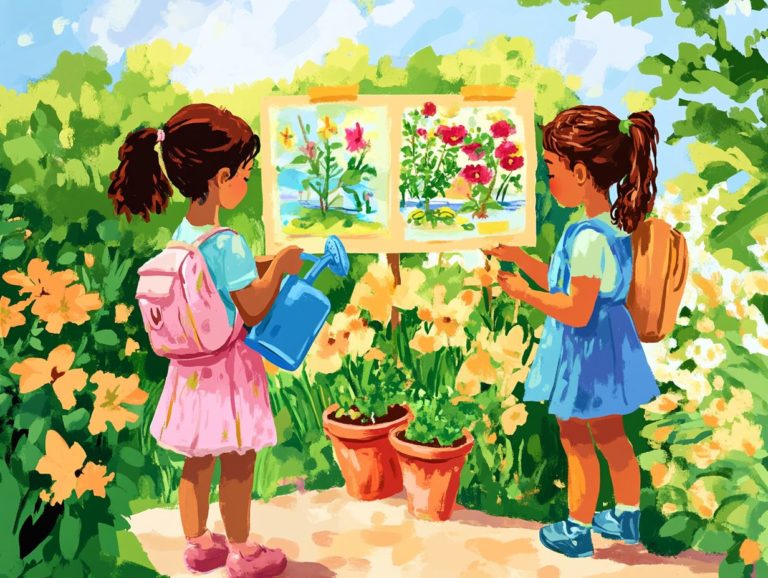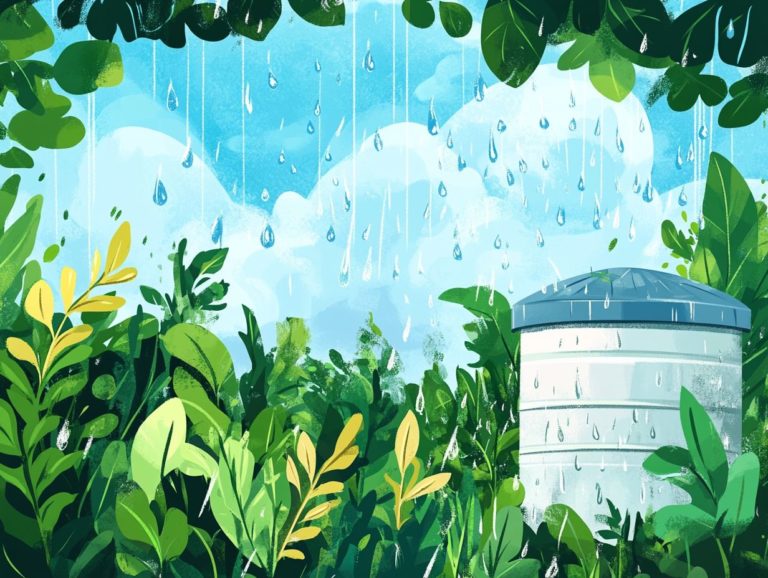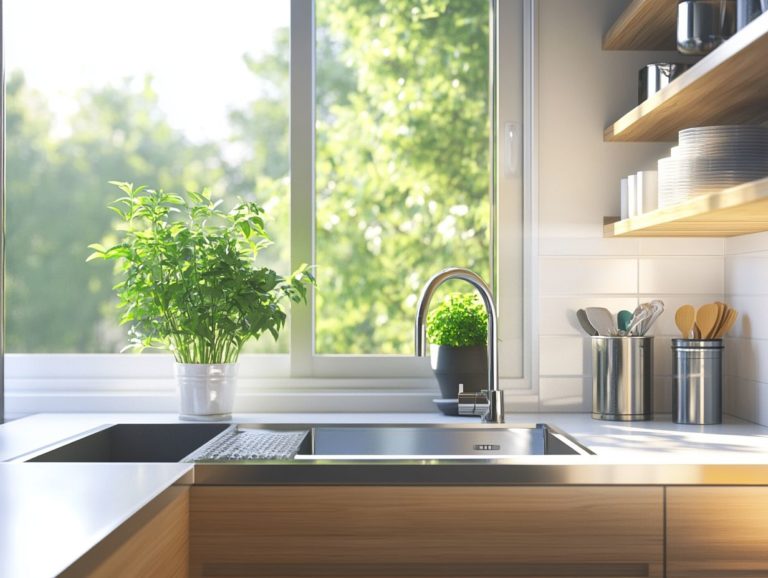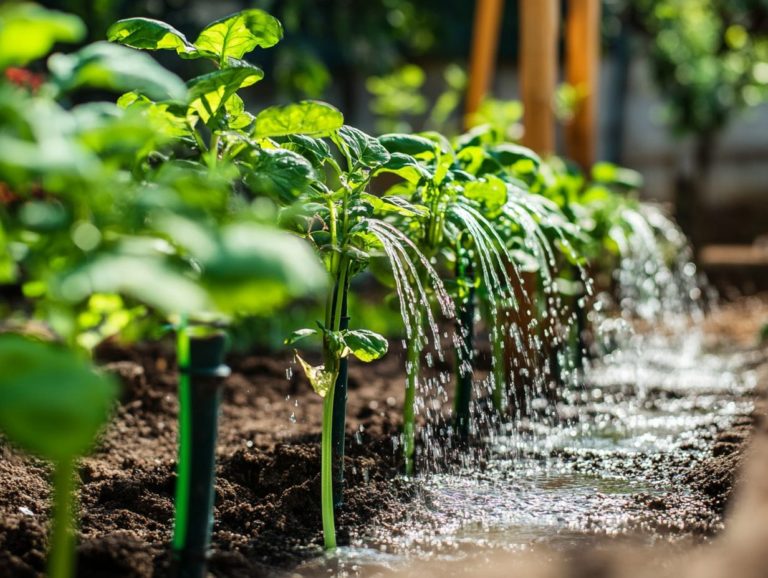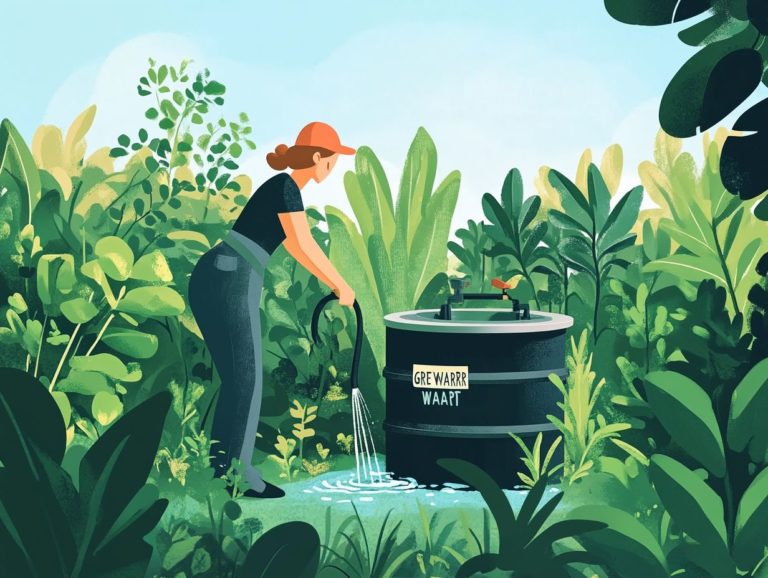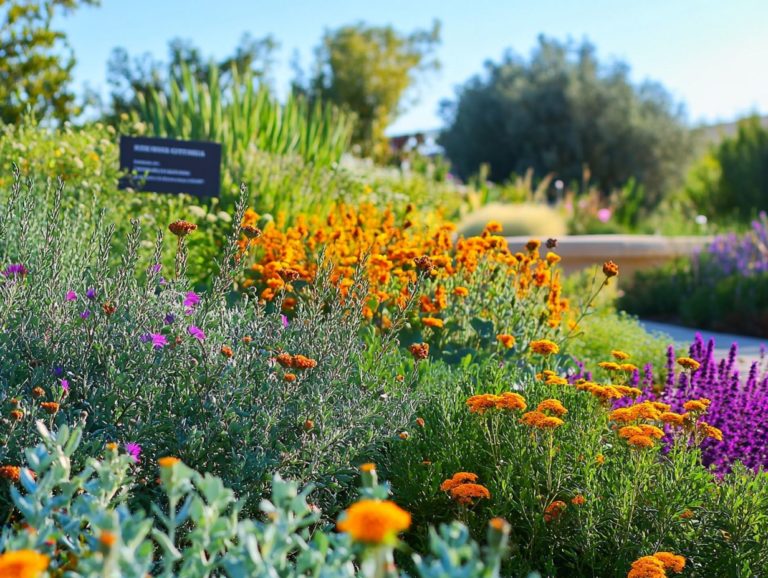How to Get Involved in Local Water Conservation Efforts
Water is one of your most precious resources, yet it s often taken for granted. Understanding the origins of your water and its role in your community is essential.
This article explains why your local water supply matters. It also shares simple ways to reduce water use at home.
You ll discover how you can actively engage in local initiatives and the positive effects these efforts can have on both the environment and your community. Embrace the opportunity to make a difference!
Contents
- Key Takeaways:
- Why it Matters
- Understanding Your Local Water Supply
- Ways to Conserve Water in Your Daily Life
- Getting Involved in Local Water Conservation Efforts
- Impact of Local Water Conservation Efforts
- Frequently Asked Questions
- How can I get involved in local water conservation efforts?
- What are some simple ways to conserve water at home?
- Are there any educational resources available for learning about water conservation?
- How can I encourage my community to conserve water?
- Is there any financial assistance available for water conservation projects?
- What are some long-term benefits of participating in local water conservation efforts?
Key Takeaways:
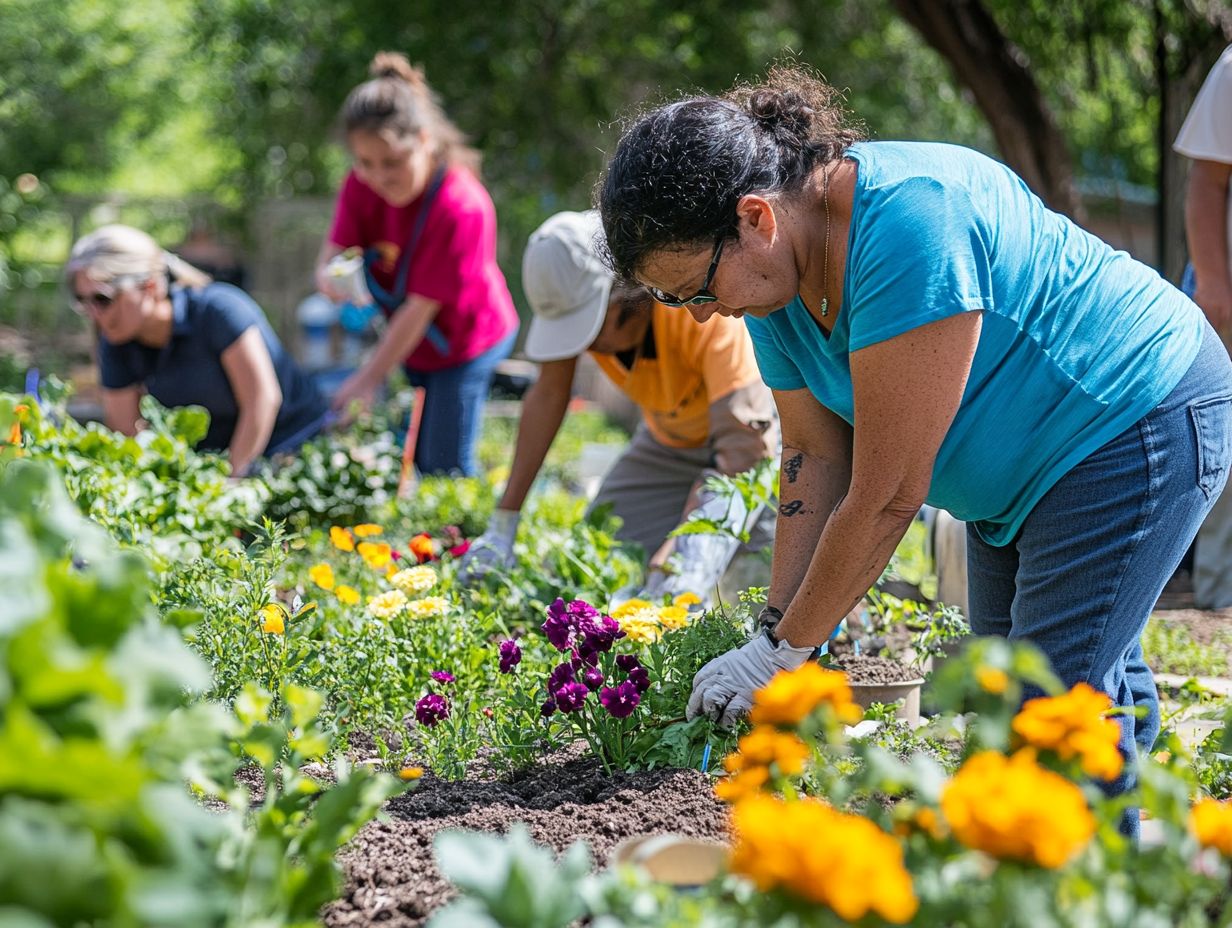
- Learn about your local water supply and conservation efforts.
- Implement water-saving tips in your daily life.
- Get involved through volunteering to impact your environment positively.
Why it Matters
Understanding the importance of water conservation and environmental sustainability is vital not just for the immediate health of our ecosystems, but also for the long-term well-being of future generations.
Access to clean water is a fundamental human right that supports the variety of living things, from pollinators to birds and amphibians. It also fosters community engagement to tackle these important issues directly.
You can make a real difference by joining awareness campaigns and advocating for change!
Understanding Your Local Water Supply
Understanding your local water supply is crucial for effective water management and conservation in your area. It enables you and your community to integrate water-saving habits into your daily routines.
By familiarizing yourself with local initiatives that advocate for clean water access and emphasize water quality, you can take meaningful actions to support community efforts dedicated to preserving these vital resources.
Where Your Water Comes From
Understanding the source of your local water supply is essential for grasping the intricacies of water management and conservation efforts. This knowledge shapes community engagement and plays a pivotal role in the sustainability of local ecosystems.
Whether your clean water flows from rivers, lakes, or aquifers, recognizing its origin enables you to appreciate its value and participate in local initiatives dedicated to protecting these vital resources.
Rivers, with their dynamic ecosystems, offer not just drinking water but also habitats for diverse wildlife. They foster a sense of interconnectedness among you and your neighbors.
Lakes, gracing the landscape with their tranquil beauty, serve as recreational havens while supporting local flora and fauna, underscoring the importance of their preservation.
Meanwhile, aquifers, quietly residing beneath the surface, are crucial for groundwater supply; ensuring their protection is vital for long-term sustainability.
By deepening your understanding of these sources, you can engage in meaningful conservation practices like clean-up drives and educational programs that promote environmental stewardship. This way, you ll help ensure that future generations have access to abundant, clean water resources.
Current Water Usage and Conservation Efforts
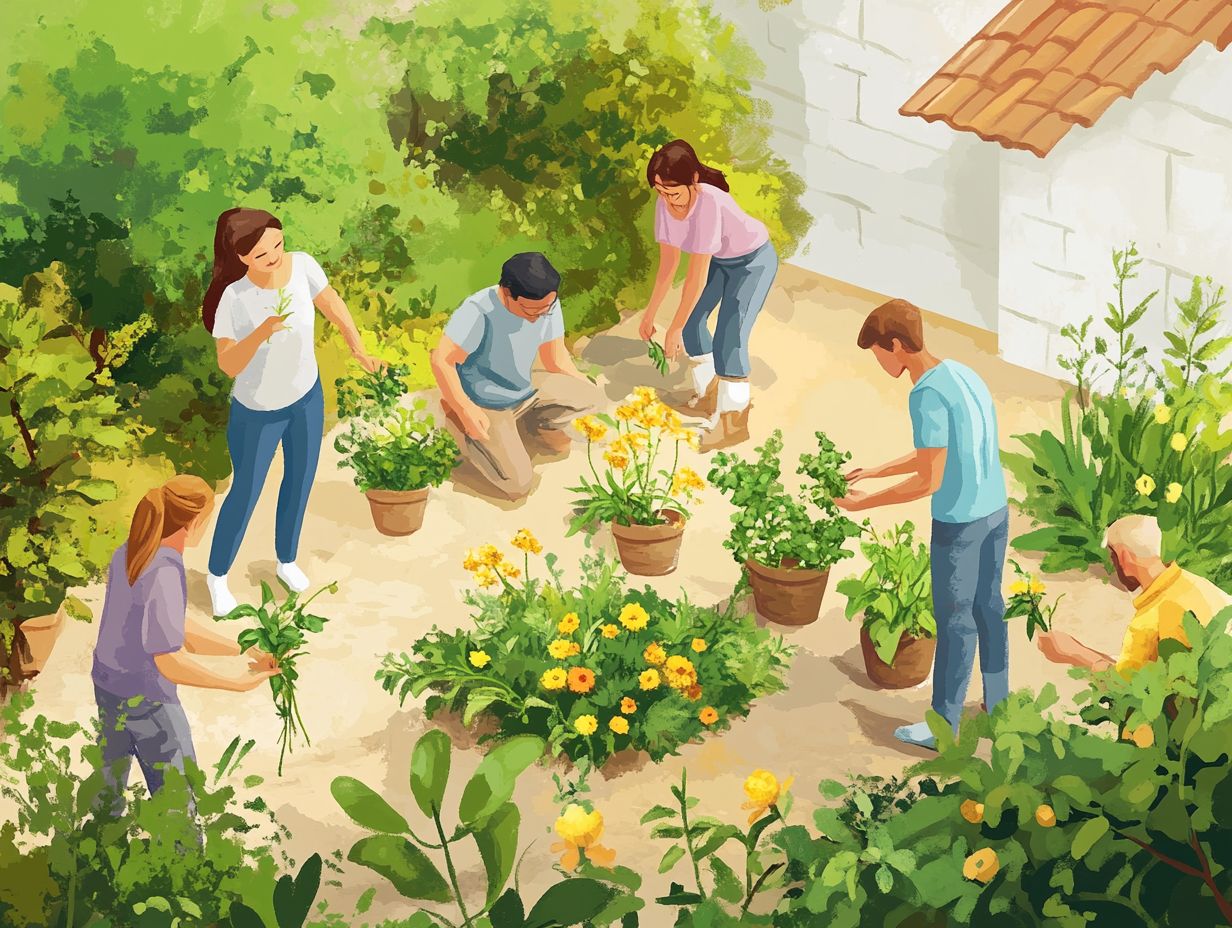
Current water usage patterns reveal the urgent need for strong conservation efforts. You can see how water-efficient appliances and responsible habits significantly cut down on consumption.
Awareness campaigns are key in educating communities about sustainable practices that aim to preserve water. These efforts help turn the tide on water crises and cultivate a culture of conservation.
Recent statistics show alarming trends, with around 70% of the world s fresh water being consumed for agriculture, leaving precious little for other essential needs. Homes use a lot of water, often overlooking simple yet effective ways to conserve.
By participating in educational initiatives, communities like yours can adopt practical strategies such as rainwater harvesting or greywater recycling, which is water from sinks, showers, and washing machines. These strategies not only reduce waste but also benefit local ecosystems.
Collaborative efforts between governments and grassroots organizations are crucial to amplify this message and raise awareness. It s vital that the need for clean water is prioritized across all sectors, ensuring a sustainable future for everyone.
Ways to Conserve Water in Your Daily Life
Incorporating water conservation and sustainable practices into your daily life is entirely achievable with a few thoughtful adjustments. Consider adopting water-efficient appliances or employing mindful techniques for outdoor watering.
By cultivating water-saving habits, you can significantly diminish your water footprint while actively contributing to the larger mission of ensuring clean water access for everyone.
Practical Tips and Techniques
Adopting practical tips and techniques for water conservation can truly make a remarkable impact. Simple changes like using low-flow showerheads can greatly reduce water usage while keeping your routine comfortable.
Even minor adjustments in your daily routine can lead to significant reductions in water usage, positively contributing to community engagement and environmental sustainability.
Encouraging attendees at community events to engage in workshops focused on hygiene and sanitation education raises awareness about the importance of proper practices.
When you combine mindful water usage with educational outreach, you significantly uplift local initiatives, fostering a culture committed to individual responsibility and collective action in preserving this essential resource.
Getting Involved in Local Water Conservation Efforts
Join the movement! Getting involved in local water conservation efforts allows you to make a meaningful contribution to your community while championing the role of local governments in water conservation and sustainable practices.
By volunteering with local organizations, participating in awareness campaigns, and joining fundraising initiatives, you can influence the preservation of essential water resources and learn how to set up a water conservation plan.
Volunteering and Advocacy Opportunities
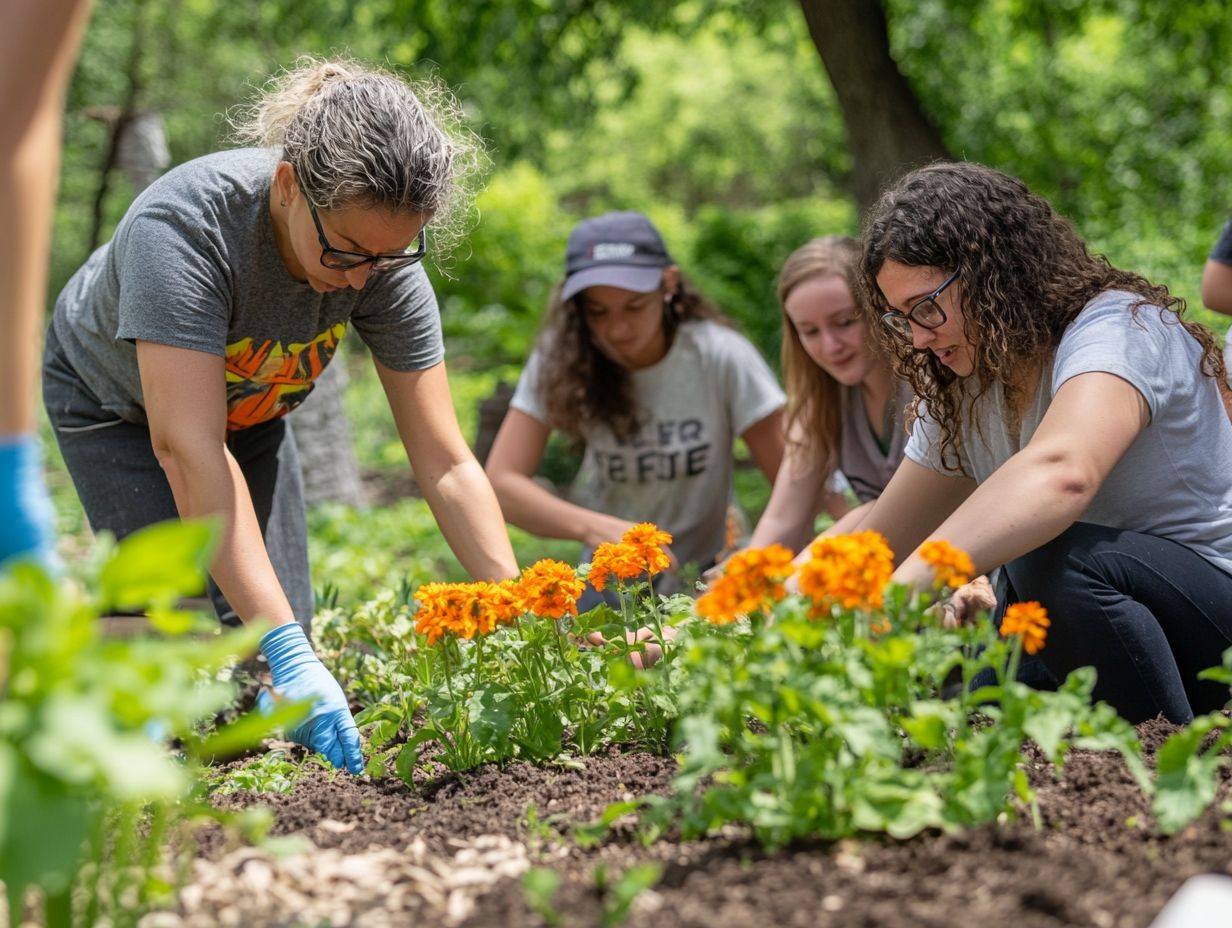
Volunteering and engaging in advocacy for water conservation efforts provides you with a unique opportunity to directly support your community while raising awareness about the critical importance of preserving clean water resources. For practical tips, check out this guide on how to implement a water conservation program at home.
By collaborating with local organizations, you can enhance community support, promote impactful awareness campaigns, and cultivate a culture of environmental sustainability.
Participating in initiatives like river clean-ups organized by local conservation groups or attending educational workshops led by environmental nonprofits can transform you into a steward of your waterways.
Local watershed associations frequently seek volunteers to assist in monitoring water quality, which is vital for keeping pollution at bay.
Joining advocacy campaigns allows you to amplify your voice alongside others advocating for better water policies. These collective actions lead to meaningful environmental outcomes while uniting individuals around a shared mission, strengthening community bonds, and inspiring further action toward the preservation of water.
Impact of Local Water Conservation Efforts
Local water conservation efforts have a big impact on your community. They help protect the environment and keep our ecosystems clean.
These initiatives build community support. They raise awareness about the importance of managing and conserving water for a healthier planet.
Positive Effects on the Environment and Community
Local water conservation efforts benefit both the environment and the community. They promote sustainability and ensure access to clean water.
By encouraging community involvement, you help create healthier ecosystems. This fosters a culture of sustainability that extends beyond just water use.
Advocacy is crucial in this change. It raises awareness about clean water access and its link to public health.
Engaging local leaders strengthens these initiatives. It creates a ripple effect that benefits both the environment and community, uniting residents for a common cause.
Frequently Asked Questions
How can I get involved in local water conservation efforts?
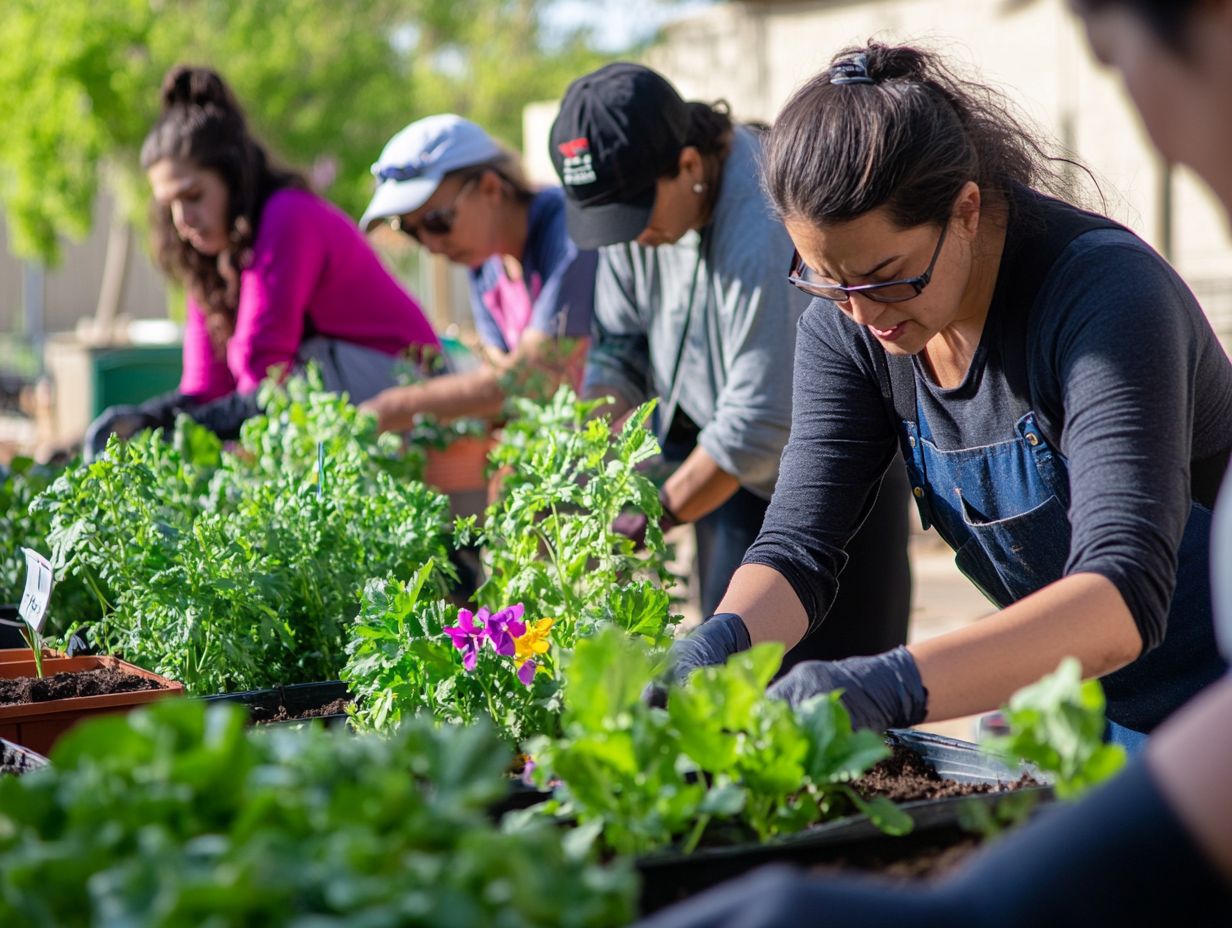
You have many options to get involved. Join a local conservation group, volunteer for clean-ups, or start your own project.
What are some simple ways to conserve water at home?
Simple ways to conserve water include fixing leaks, using water-efficient showerheads, and turning off the faucet while brushing your teeth or washing dishes.
Are there any educational resources available for learning about water conservation?
Yes, many educational resources exist. Attend workshops, read books or articles, and take online courses.
How can I encourage my community to conserve water?
Encourage your community by organizing events, creating social media awareness, and setting an example with your own water-saving practices.
Is there any financial assistance available for water conservation projects?
Yes, various grants and funding opportunities are available. Check with local government or environmental organizations for support.
What are some long-term benefits of participating in local water conservation efforts?
Long-term benefits include saving money on water bills, preserving natural resources, and creating a healthier environment for future generations.

